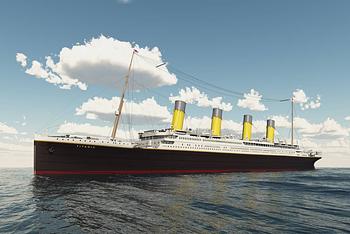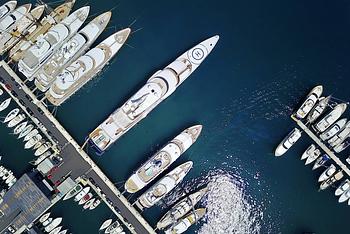There are so many fun activities you can do from your boat, from waterskiing to fishing, snorkelling to scuba diving. While some require little preparation and equipment others, such as scuba diving, need a bit more consideration to ensure everything is safe and enjoyable. To dive beneath the surface of the ocean and be part of a whole different world is an incredible experience. Whether you’re sailing in tropical waters such as the Caribbean or Pacific Islands and want to explore vibrant reefs teeming with brightly coloured fish, or are boating in the United States or Mediterranean and want to explore hidden wrecks, scuba diving from your boat can open up a whole new world.
So what do you need to consider when scuba diving from your boat?
Get Certified and Practice, Practice, Practice
If you’re not already then first and most important thing to do is enrol yourself and your soon-to-be diving buddy on a scuba diving certification course. Organisations such as PADI offer introductory Open Water courses, but it’s recommended to be at least Advanced Open Water trained. These two courses together will take about a week but can be spread out over a longer period. The next thing to do is clock up as many dives as you can whilst under the supervision of a divemaster. You want to feel confident not just with the equipment, but with navigating and safety practices and the only way to do that is to do as many supervised dives as you can before setting off on your own.
Get Your Boat Equipped for Scuba Diving
When you feel ready to head off diving on your own (and when we say your own, we mean always with a buddy) you’ll want to get your boat geared up with everything you need. Start with your personal equipment, including a wetsuit, BCD (buoyancy control device), regulator set, weights, fins, mask and a surface signalling device known as a dive sausage. The cost of these varies hugely, from good quality entry level equipment which will last hundreds of dives, to the very latest tech. An invaluable piece of equipment is a dive computer, which monitors your depth and time to calculate safe diving limits using dive tables, and you’ll also need your own set of tanks (at least two per person).
You’ll also want to have some spares on board including O-rings, spare hoses, some fins and a mask and some diver tools. There’s nothing worse than having to sit out a dive because you’ve got a missing O-ring or your mask strapped snapped.
When it comes to making sure your boat is fully equipped for scuba diving, start with the basic safety gear all boats should have including marine radios or at the very least a mobile phone if staying close to shore. In addition you’ll need a red and white dive flag to signal to other boaters that there are divers below, a first aid kit and an oxygen tank. In the case of a diving accident where decompression sickness is suspected this is the most important treatment you can offer a diver while they are getting to medical help. Dive accident oxygen systems are available through Divers Alert Network (DAN).
Getting Your Tanks Filled
When it comes to filling your tanks you have two choices depending on the destinations you’ll be visiting and the amount of diving you want to do. If you’ll be heading out for day or weekend trips on your boat, then you can easily get your tanks filled at a local dive centre for minimal cost. If you’re sailing around the world and planning to dive from your boat on a regular basis in remote locations then you’re likely going to need to have a compressor installed. These can be costly but are an invaluable piece of equipment for keen divers. There are many models of compressors on the market, from gas to diesel and electric and they can vary hugely in how long they take to fill a tank of air and how big they are.
Having said that, even in remote locations it isn’t always necessary to have a compressor as dive centres can be found even in far flung places. Likewise, just listen out for the sound of a compressor from nearby boats and, for a small sum, you might get a fellow boater to fill your tanks for you. Dive compressors for boats do need regular maintenance to ensure clean, dry air is filled into the tanks, so be aware of the long term upkeep before committing to installing one in your boat.
Safety is Paramount
Diving is a wonderful and freeing activity, but done wrong it can be dangerous. Thorough safety checks and protocols on every single dive are essential to ensure that everything runs smoothly and safely. There are a few differences in shore diving vs boat diving, but it’s important to;
-
Leave Someone on the Boat. Ensure someone always stays on the boat when two or more people go scuba diving for several reasons. In the case of an accident, someone needs to call for help. It ensures the boat is where you left it when you surface. If you get lost whilst on your dive and surface far from the boat they can come and pick you up. They can keep watch for bubbles and ensure other boaters don’t ignore the dive flags.
-
Assign Someone the Role of Divemaster. The old phrase ‘too many cooks spoil the broth’ is very apt in this case, and it’s best to nominate one person to be the divemaster. They will coordinate where you’ll be diving, the type of dive you’ll be doing (anchored or drift dive for example) and generally take leadership of the dive.
-
Check the Weather. The weather changes quickly at sea and it’s important to know what the forecast is when you’ll be doing your dives. Avoid diving in poor visibility, rough seas or windy conditions as it can make getting on and off the boat dangerous. Monitor the conditions right up until the point of starting the dive and be prepared to call it off if the weather changes.
-
Know where you’ll be diving. Even if you’re diving somewhere you are unfamiliar with, do your homework before embarking on a dive. You’ll need to know that you’re not in a shipping lane, restricted marine preserve, or high-traffic area. While exploring the deep unknown Jacques Cousteau style is all part of the fun, it’s always helpful to talk to local divers and understand the geology or currents of the dive before jumping in.
-
Conduct a safety briefing. Even if there are just two of you diving, have a safety briefing before setting off so that you’re both on the same page. Discuss the dive, maximum depths, dive time and go over your signals. You’ll want to be diving to the limits of the least experienced diver. Check your gear and each other’s before starting the dive, and discuss the protocol with the captain/person left on board in the unlikely case of an accident or missing diver.
If you’re looking for your next boat, Rightboat.com is should be your first port of call (pun intended!). Whether it’s a nifty weekend boat perfect for doing scuba diving and watersports from, or a sailing yacht that will take you on an epic voyage, your search should start here.
Related Articles and Guides
20th May 2024
The Top 10 Famous Classic Ships in History
21st Apr 2024
How Much Does a Superyacht Cost?
12th Mar 2024
What Is a Good Boat Name? Over 200 of the Best Boat Names
23rd Oct 2023





